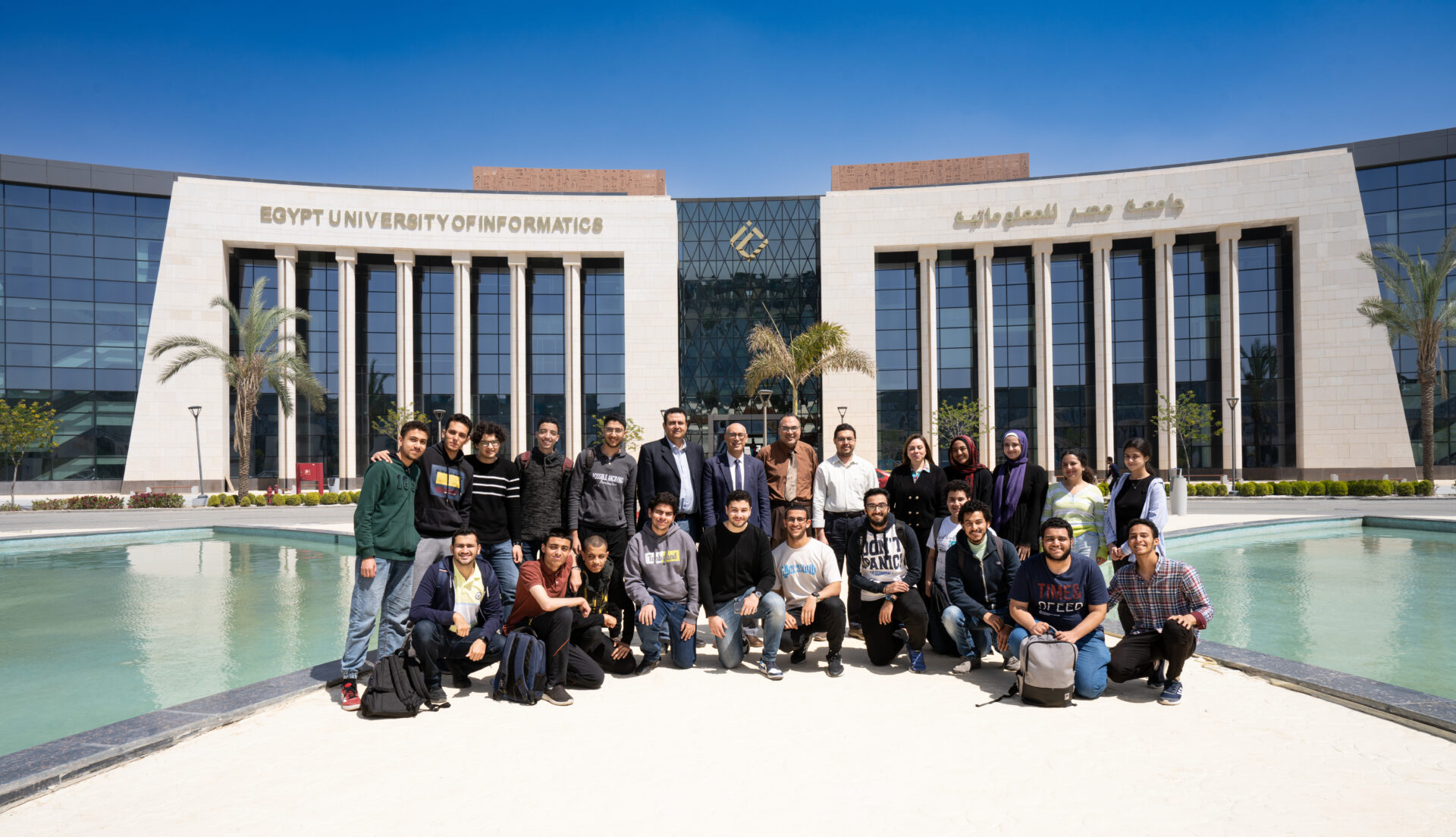
EUI welcomes 20 Arab and African Diplomatic Delegations

EUI received high-level delegations from the diplomatic missions of the embassies of Zambia, Namibia, Mauritius, Sierra Leone, Malawi, Senegal, Ghana, Kenya, Cameroon, and Nigeria, as well as the UAE, Saudi Arabia, Jordan, Djibouti, Somalia, Oman, Palestine, Kuwait, Morocco, and Mauritania. The visit aimed to enhance scientific and academic cooperation and to leverage the modern capabilities of the university, which offers educational programs that meet the market's need for specialists in the latest fields of information and communication technology, such as artificial intelligence, data engineering, the Fourth Industrial Revolution, electronics, communication sciences, mechatronics, robotics, financial technology, digital marketing, animation arts, user experience, and game design.
The event was attended by Prof. Reem Bahgat, President of EUI, Prof. Mohamed El-Sharkawy, Vice President of the University, Dr. Amal El-Gamal, Head of International Relations at the University, along the deans of the faculties. Representatives from the Ministry of Communications and Information Technology, including members of the International Relations and Public Relations departments, were also present.
The meeting began with a recorded speech by the Minister of Communications and Information Technology, welcoming the guests and highlighting the university’s role in graduating highly qualified professionals for both the local and global markets in the fields relevant to the ministry. Prof. Reem Bahgat welcomed the delegations and other attendees, explaining the steps and stages of establishing the university and its academic partnerships with major global universities.
Members of the diplomatic missions expressed their great happiness with the visit and their admiration for the colleges, laboratories, and research centers, as well as the academic and practical resources available to students at the university, which aligns with Egypt's significant development across all sectors over the past seven years.
Prof. Bahgat assured the visiting delegations that the university will provide all necessary support to students from Arab and African countries wishing to enroll, and it will also promote scientific cooperation with researchers from these countries, as part of its initiative to strengthen scientific collaboration across the African continent and the Arab world, contributing to the region's development and progress.
The two-day visit included, on the first day, a delegation from the Embassy of Zambia led by Ambassador Tobbly Lubaya, Major General Fillio Hifindaka, Ambassador of Namibia, a delegation from Mauritius led by Ambassador Dattakarran Jhuboo, a delegation from Sierra Leone led by Ambassador Sadiq Silla, Ambassador Catherine Konje of Malawi, Ambassador Aboubacar Sarr of Senegal, a delegation from Ghana led by Deputy Ambassador Lydia Omarti, Ambassador Roy Dzila of Kenya, and representatives from the embassies of Cameroon and Nigeria.
On the second day, representatives from the Arab countries participated in the visit, including Sheikh Dr. Ammar Al-Mulla, the Cultural Attaché of the UAE in Egypt, Dr. Ahmed Al-Farij, the Cultural Attaché of Saudi Arabia in Egypt, Fawzi Abu Fares, the Cultural Advisor of Jordan in Egypt, Khadija Idris, the Cultural Advisor of Djibouti in Egypt, Ibrahim Omar, the Somali Cultural Attaché in Egypt, Sultan Al-Husni, First Secretary of the Oman Embassy in Egypt, Dr. Iyad Abu Al-Hanoud, the Academic and Research Affairs Officer at the Palestinian Embassy in Egypt, Dr. Abdulrahman Al-Rujyan, the Kuwaiti Cultural Attaché in Egypt, Tarek Badawi, Economic Advisor at the Moroccan Embassy in Egypt, and Al-Alem Abdel Baqi, Chargé d'Affaires of the Mauritanian Embassy in Egypt.
Additionally, Dr. Amr Omran, the Egyptian Cultural Attaché in Saudi Arabia, and Dr. Emad Hashish, the Egyptian Cultural Attaché in Kuwait, attended remotely via interactive platforms.

